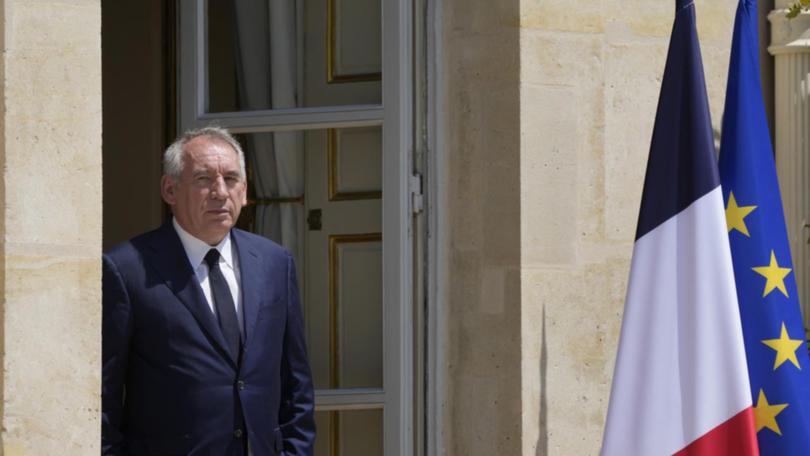Francois Bayrou: Emmanuel Macron's new Prime Minister faces 'long road' of challenge against French MPs
Politicians have given a mixed reaction to the appointment of Emmanuel Macron’s fourth prime minister of 2024.

French President Emmanuel Macron has named key ally Francois Bayrou as his fourth prime minister of 2024 but the scale of the challenge facing the veteran centrist was immediately clear as the Socialist Party refused to join his coalition government.
Mr Bayrou, 73, gave a sober assessment of whether he could tame a hung parliament that ousted his predecessor, Michel Barnier, just last week.
“It is a long road, everyone knows that,” he told reporters.
Sign up to The Nightly's newsletters.
Get the first look at the digital newspaper, curated daily stories and breaking headlines delivered to your inbox.
By continuing you agree to our Terms and Privacy Policy.“I am not the first to take a long road.”
France’s festering political malaise has raised doubts about whether Mr Macron will complete his second presidential term until 2027.
Mr Bayrou, the founder of the Democratic Movement (MoDem) party which has been a part of Mr Macron’s ruling alliance since 2017, has himself run for president three times - leaning on his rural roots as the longtime mayor of the southwestern town of Pau.
His immediate priority will be passing a special law to roll over the 2024 budget, with a nastier battle over the belt-tightening 2025 legislation looming early next year.
Mr Bayrou said on Friday that reducing France’s pile of debt was not only a political priority but a moral obligation.
“The deficit and the debt, that’s an issue which raises moral questions,” Mr Bayrou said in his first speech upon taking office.
Parliamentary pushback over the 2025 bill led to Mr Barnier’s downfall and progressive leaders on Friday announced they might try to topple Mr Bayrou as well should he use special constitutional powers to ram through the budget against parliament.
Mr Bayrou’s proximity to the deeply unpopular Mr Macron may also prove to be a vulnerability.
The Socialist Party, which Macron courted during his prime ministerial search, accused the president of ignoring their demands for a leftist leader in favour of a “risky” Macronista.
“We will thus not enter the government and remain in the opposition,” said Boris Vallaud, the leader of the Socialists’ parliamentary bloc.
Reaction to MR Bayrou’s appointment on the left will be a concern for Macron, with the prime minister likely living day-to-day, at the mercy of the president’s opponents, for the foreseeable future.
Mr Macron will hope Mr Bayrou can stave off no-confidence votes until at least July, when France will be able to hold a new parliamentary election.
Leaders of the populist leftist France Unbowed party said they would be seeking to immediately remove Mr Bayrou while leaders from other progressive parties took a more nuanced approach.
Greens boss Marine Tondelier also said she would support a no confidence motion if the prime minister ignored their tax and pensions concerns.
Communist leader Fabien Roussel said his party would hold fire against Mr Bayrou and decide on a case-by-case basis if he promises not to ram through legislation.
Jordan Bardella, president of the populist conservative National Rally (RN) party, said it would not be calling for an immediate no confidence motion while fellow RN leader Marine Le Pen said Mr Bayrou should listen to the opposition’s budgetary wishes.
Mr Barnier’s budget bill, which aimed for 60 billion euros ($A99 billion) in savings to assuage investors increasingly concerned by France’s 6 per cent deficit, was deemed too miserly by the parties on the right and left extremes.
Macron named Mr Bayrou as justice minister in 2017 but he resigned only weeks later amid an investigation into his party’s alleged fraudulent employment of parliamentary assistants.
He was acquitted of fraud charges this year.
